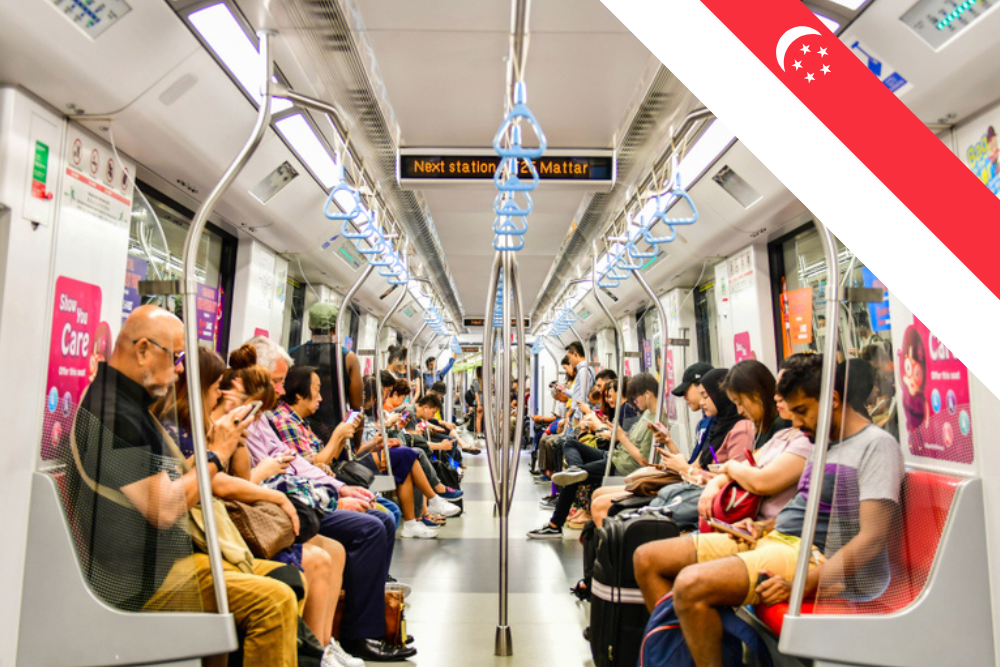Smartphone Use in Singapore: Key Findings from IMH Study
A recent Health and Lifestyle Survey conducted by the Institute of Mental Health (IMH) has revealed significant findings regarding smartphone use in Singapore. The study highlights that 30.2% of the population, or approximately one in three individuals, exhibit problematic smartphone use (PSU). This behaviour is strongly linked to various mental health challenges, including depression, anxiety, and insomnia.
High Prevalence of Problematic Smartphone Use
The IMH study found that problematic smartphone use in Singapore is prevalent among residents aged 15 to 65 years. Researchers used the Smartphone Addiction Scale-Short Version (SAS-SV) to assess the extent of PSU. The study revealed that 30.2% of participants met the criteria for problematic smartphone use, with a gender-specific cut-off of ≥31 for males and ≥33 for females.
This translates to nearly one in three individuals experiencing significant issues with their smartphone use. The prevalence of PSU was particularly high among younger individuals, aged 15 to 34, who exhibited the highest rates of problematic use.
Impact on Mental Health
Individuals with problematic smartphone use in Singapore were significantly more likely to experience adverse mental health outcomes. The study assessed mental health using several validated questionnaires. It found that those with PSU had much higher chances of experiencing moderate to severe symptoms of depression, anxiety, and insomnia compared to those without PSU.
For instance, the odds of having moderate to severe depression were more than three times higher (odds ratio of 3.2) among individuals with PSU. This means that if you have problematic smartphone use, you are over three times more likely to suffer from significant depressive symptoms than someone who does not have PSU. Similarly, the odds of experiencing moderate to severe anxiety were 3.4 times higher, indicating a strong link between excessive smartphone use and anxiety disorders. For insomnia, the odds were also 3.4 times higher, showing that those with PSU are significantly more likely to have serious sleep problems.
Additionally, the study measured positive mental health using the Rapid Positive Mental Health Instrument and found that individuals with PSU had lower scores. This suggests that not only does problematic smartphone use correlate with mental health issues, but it also negatively impacts overall well-being and life satisfaction.
Sociodemographic Factors
The study also examined various sociodemographic factors associated with smartphone use in Singapore. Younger individuals, particularly those aged 15-34, were found to be the most affected by problematic smartphone use. This age group exhibited the highest prevalence of PSU, indicating that younger people are more prone to excessive smartphone use, possibly due to greater dependence on smartphones for social interaction and entertainment.
The study did not find significant differences in PSU prevalence between males and females, suggesting that problematic smartphone use is a widespread issue across genders. However, certain educational and marital status groups were more likely to exhibit PSU. Individuals with secondary school or pre-tertiary education levels showed higher rates of PSU compared to those with higher education levels.
Additionally, those who were separated, widowed, or divorced had a higher likelihood of experiencing problematic smartphone use compared to married individuals. These findings highlight the need for targeted interventions that consider these sociodemographic factors to effectively address smartphone use in Singapore.
Addressing the Challenges of Smartphone Use in Singapore
The IMH Health and Lifestyle Survey provides crucial data on the extent of problematic smartphone use in Singapore. With one in three individuals affected, addressing this issue is vital for improving the overall mental health and well-being of the population. The strong associations between PSU and symptoms of depression, anxiety, and insomnia highlight the need for targeted public health interventions.
By understanding the patterns and impacts of smartphone use in Singapore, policymakers and healthcare providers can develop more effective strategies to promote healthier digital habits and mitigate the negative effects on mental health.
References
Subramaniam, M., Koh, Y. S., Sambasivam, R., Samari, E., Abdin, E., Jeyagurunathan, A., Tan, B. C. W., Zhang, Y., Ma, S., Chow, W. L., & Chong, S. A. (2024). Problematic Smartphone Use and Mental Health Outcomes among Singapore Residents: The Health and Lifestyle Survey. Asian Journal of Psychiatry, 98, 104124. https://doi.org/10.1016/j.ajp.2024.104124

